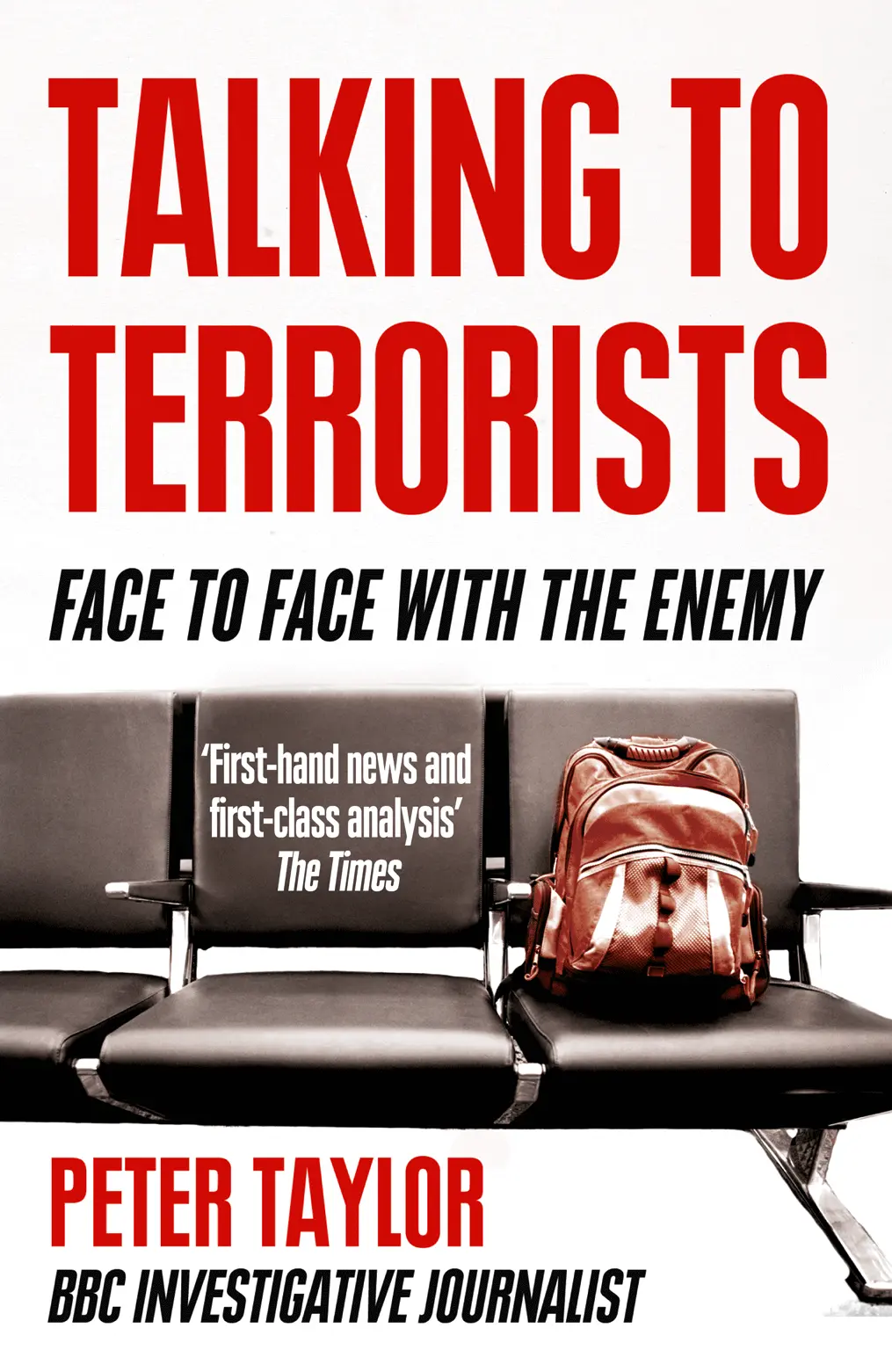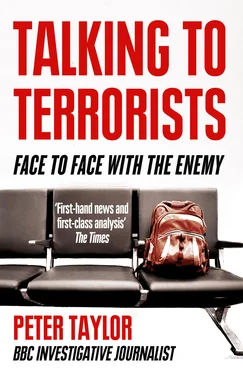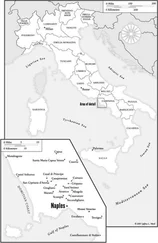
PETER TAYLOR
Talking to Terrorists
A Personal Journey
from the IRA to Al Qaeda

To my family, friends and colleagues
Forsan et haec olim meminisse iuvabit ‘One day it will be good to remember these things’
VIRGIL, AENEID , BOOK ONE, LINES 203–4
Contents
Cover
Title Page PETER TAYLOR Talking to Terrorists A Personal Journey from the IRA to Al Qaeda
Epigraph Forsan et haec olim meminisse iuvabit ‘One day it will be good to remember these things’ VIRGIL, AENEID , BOOK ONE, LINES 203–4
Preface
Introduction - Recognising Reality
Chapter One - Talking to the IRA
Chapter Two - From the IRA to Al Qaeda
Chapter Three - Talking to Hijack Victims
Chapter Four - Talking to the Interrogators
Chapter Five - Talking to a Convicted Terrorist
Chapter Six - Anatomy of a Sleeper Cell
Photographic Insert 1
Chapter Seven - One Morning in September
Chapter Eight - A Warning Not Heeded
Chapter Nine - Bombs on Bali
Chapter Ten - Understanding the ‘New’ Al Qaeda
Chapter Eleven - Terror on the Ground
Chapter Twelve - Clean Skins
Chapter Thirteen - Terror in the Skies
Photographic Insert 2
Chapter Fourteen - Jihad.com
Chapter Fifteen - Talking to the Victims of Torture
Chapter Sixteen - Journey to the Dark Side
Acknowledgements
Notes
Bibliography
Index
Illustrations
By the same author
Copyright
About the Publisher
Preface
The title of this book, Talking to Terrorists , is intended to suggest a broad compass. I’ve talked to many terrorists in nearly forty years of covering the phenomenon that has scarred the lives of so many during the latter years of the twentieth century and the first decade of the twenty-first. I’ve talked to terrorists not because I sympathise with them – I believe that conflicts should be resolved through dialogue, not destruction – but in order to try to understand their motivation, and to explore why individuals are prepared to kill for a cause, be it secular or religious, in which they believe. In the case of suicide bombers, they’re prepared to kill themselves too. I’ve always hoped that the programmes I’ve made and the books I’ve written may also help others to understand and perhaps reconsider the stereotype of the ‘terrorist’ – the deranged, fanatical gunman, or the bloodthirsty bomber who kills for the sake of killing. The reality is far more complex. I hope that this book may contribute to the continuing debate about how liberal democracies should respond to threats of terrorism and, where appropriate, engage in the process of conflict resolution.
This book isn’t just about me talking to terrorists. It’s also about the security and intelligence agencies – the ‘spooks’ – talking to terrorists, both to obtain evidence to bring them to justice and to elicit information: a process that in some cases has involved torture and serious abuses of human rights.
It’s also about governments talking to terrorists as part of the process of resolving conflict. The British government talked to the IRA (as detailed in the first chapter of the book); the South African Prime Minister F.W. de Klerk talked to Nelson Mandela; the Americans talked to the insurgents in Iraq; and British diplomats – and no doubt American ones too – are talking to the Taliban, although at this stage perhaps only through intermediaries. Which raises the question, will we at some time in the future talk to Al Qaeda? In my view, talking to terrorists may sometimes be a necessary prerequisite of conflict resolution.
I have not set out to write a global study of terrorism, which has been done by many others, but to focus on the IRA and Al Qaeda as they are fundamentally different ‘terrorist’ organisations which I have covered in my work over many years. The book is not intended to be an academic or sociological analysis of terrorism and terrorists but, I hope, a readable and accessible narrative that may illuminate some of the complexities and contradictions of the phenomenon and bring a degree of clarity to the confusion and incomprehension that often surround it. I’ve also endeavoured to provide the all-important historical context to the origins and evolution of these contrasting movements. The conflict with the IRA has, at least for the moment, been resolved, and in the first chapter I concentrate on the mechanisms by which this was achieved, and suggest that they may act as a template for the resolution of other conflicts. The conflict with Al Qaeda is of a different order and remains ongoing.
Finally, the subtitle of the book, A Personal Journey from the IRA to Al Qaeda , describes what this book is. It is not an autobiography but the story of a journey, illustrated with personal anecdotes and observations, of almost forty years. That journey has led me from ignorance in 1972, when as a green young journalist I covered ‘Bloody Sunday’, to, I hope, a greater understanding on the tenth anniversary of 9/11 in 2011. I make no apology for making Al Qaeda and the emergence of Islamist extremism the main focus of the book, since that is the direction from which the current threat comes, and it is likely to do so for the foreseeable future. I hope that readers may share my journey and emerge at the end, like me, with a better understanding of these vital issues that have unfortunately become part of the fabric of all our lives.
Introduction
Recognising Reality
The popular perception of terrorists and terrorism is often at variance with the reality. In combating the threat, be it from the IRA, Al Qaeda or other insurgent groups, the keystone of any government’s strategy is to demonise and marginalise the enemy, in the hope of denying it moral and political legitimacy and eroding support for its cause. Over the years I’ve seen governments’ attitudes change following their recognition that the ‘terrorists’ had a cause whose roots had to be addressed, and that a compromise had to be reached if there was to be a stop to the unending shedding of blood and haemorrhaging of human and financial resources. Recognising reality is a prerequisite of ending conflict. As I’ve found on my journey, it’s also a prerequisite of reporting and analysing terrorism. The recognition of these facts did not come early for me, but gradually emerged as the result of a long process in which I engaged with some of those who were regarded as terrorists at the time. Occasionally I was caught up in their attacks. Yes, the journey was long, difficult and at times dangerous. But whatever the setbacks and frustrations along the way, it was always revela-tory, not just in my understanding of the terrorists themselves but in my acquaintance with governments’ efforts to combat them.
At the outset, I recognise the need to define my terms – most importantly of all, what is a terrorist? The legal definition of terrorism is the use of violence for political ends. But what colours the perception of the word depends on two primary considerations. First, what were the circumstances out of which that violence grew? These can range from the denial of civil rights to Catholics in Northern Ireland, the inequities of Apartheid in South Africa or the uprooting of Palestinians from their homeland, to the plight of Muslims living under occupation following the invasion of Iraq and Afghanistan by America and other Western nations. The IRA never regarded themselves as terrorists, and took exception to those who described them as such. They argued that their ‘armed struggle’ was a legitimate strategy to achieve a political end that was, they maintained, unattainable by peaceful constitutional means.
Читать дальше














